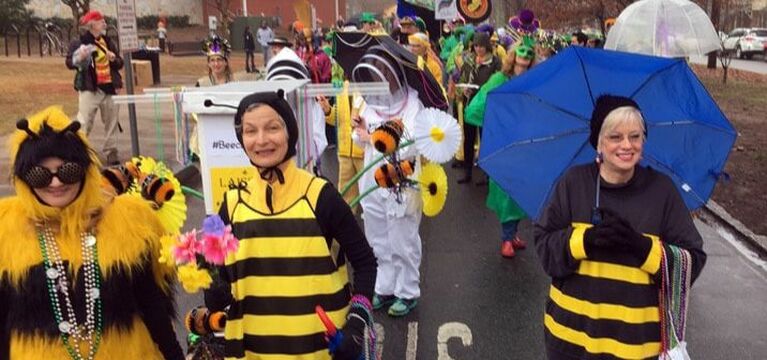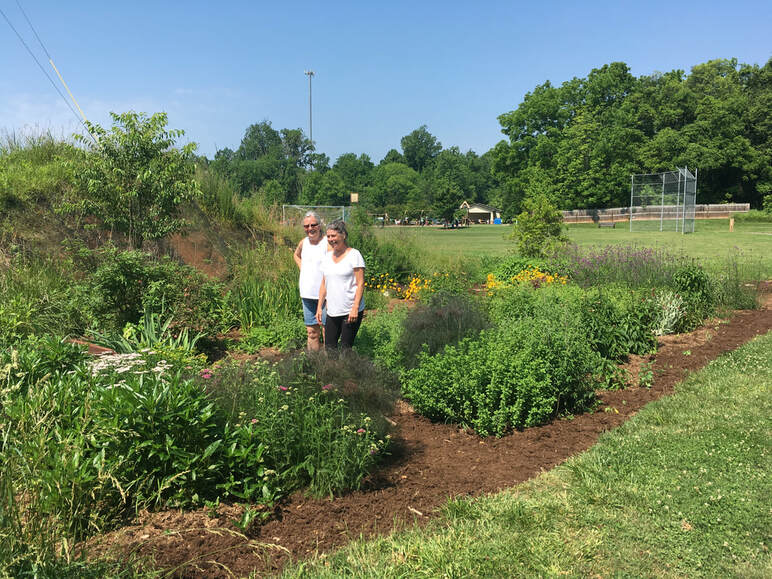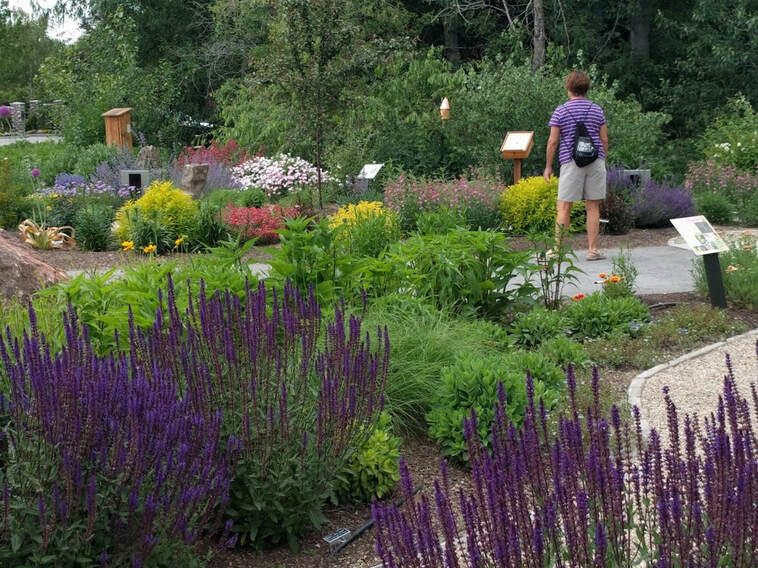
Ever stumbled on an old college paper you wrote when you were cleaning out a closet and been astounded at how smart you sounded? What if you hadn’t found that paper; would you remember that you once knew a fair amount about some obscure topic? I certainly wouldn’t—and didn’t when that happened to me.
Bee City USA & Bee Campus USA Annual Renewal Reports Are Treasure Troves
The fact is, we are receiving information at hyperspeeds these days, and were it not for their annual renewal reports, the pollinator conservation work Bee City USA and Bee Campus USA affiliates are doing might be forgotten. We so appreciate the effort it takes for affiliates to share that information with us each year for numerous reasons. As national program managers, we learn how affiliates are engaging their communities in conserving pollinators, and often discover great ideas that other affiliates could replicate. Take the seed collection and giveaway programs that Portland State University and UNC Asheville do. And how about the pollinator garden certification and annual guided tour programs in Ashland and Talent, Oregon? Seattle, Washington’s committee is a broad-based coalition of city department representatives and nonprofits that enhances habitat under utility lines, at the airport, in volunteer-managed patches; and works with the University of Washington and Washington State University to monitor how their habitat augmentation is impacting bee diversity. South Dakota State University, Mineral Area College in Missouri, and Greenwood, South Carolina, grow their own native plants for their pollinator gardens. Morehead State University in Kentucky teaches students to identify pollen in honey.

Now that Bee City USA is seven years old, affiliate staff and volunteers are experiencing turnovers for all of the reasons you’d expect—relocation, new jobs, retirement, illness. And their replacements are asking us to educate them on what was done in the past. When they do, we share all of the annual reports we have. Most affiliates proudly post their annual reports on their own Bee City or Bee Campus web pages and share the reports with their volunteers and communities to remind them of everything they accomplished together the previous year.

Many of the reports on 2018 are already published on our website. Soon, we should have all reports for last year’s accomplishments published. You can read Bee City reports and Bee Campus reports here.
Whenever you need a little lift, we hope you will take a few moments to read some of the reports. Despite the busy lives we all lead, people across America are finding the time, mostly as volunteers, to welcome pollinating bees, butterflies, hummingbirds, moths, beetles, wasps, bats, and flies into their yards, traffic islands, parks, school yards, church parking lots, businesses and roadsides. They are telling their neighbors how they can integrate native plants into their landscaping and reduce herbicide, insecticide and fungicide use and say hello to the magical creatures that enable nearly ninety percent of the world’s flowering plant species to reproduce. (Glorious blossoms and fruits aren’t so bad either.)
Your tax deductible donation will help us to protect the life that sustains us.




